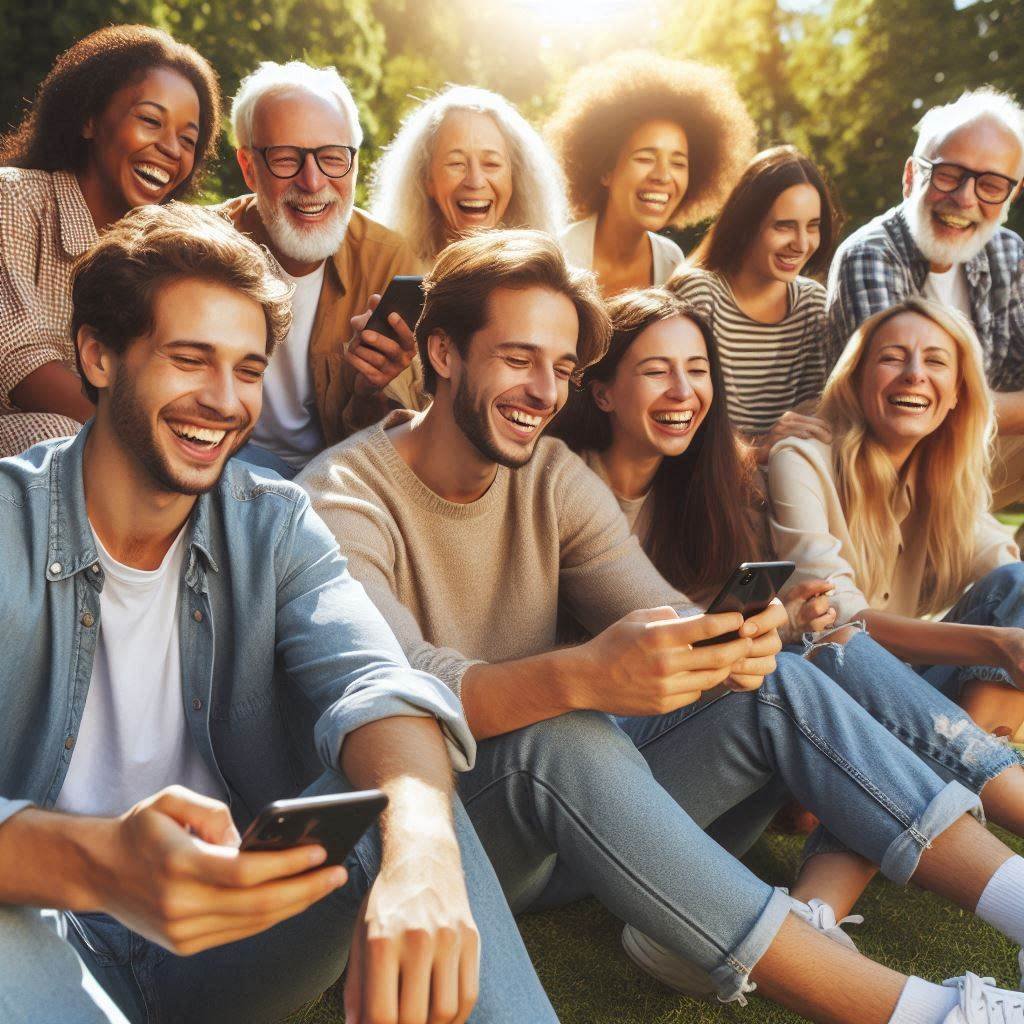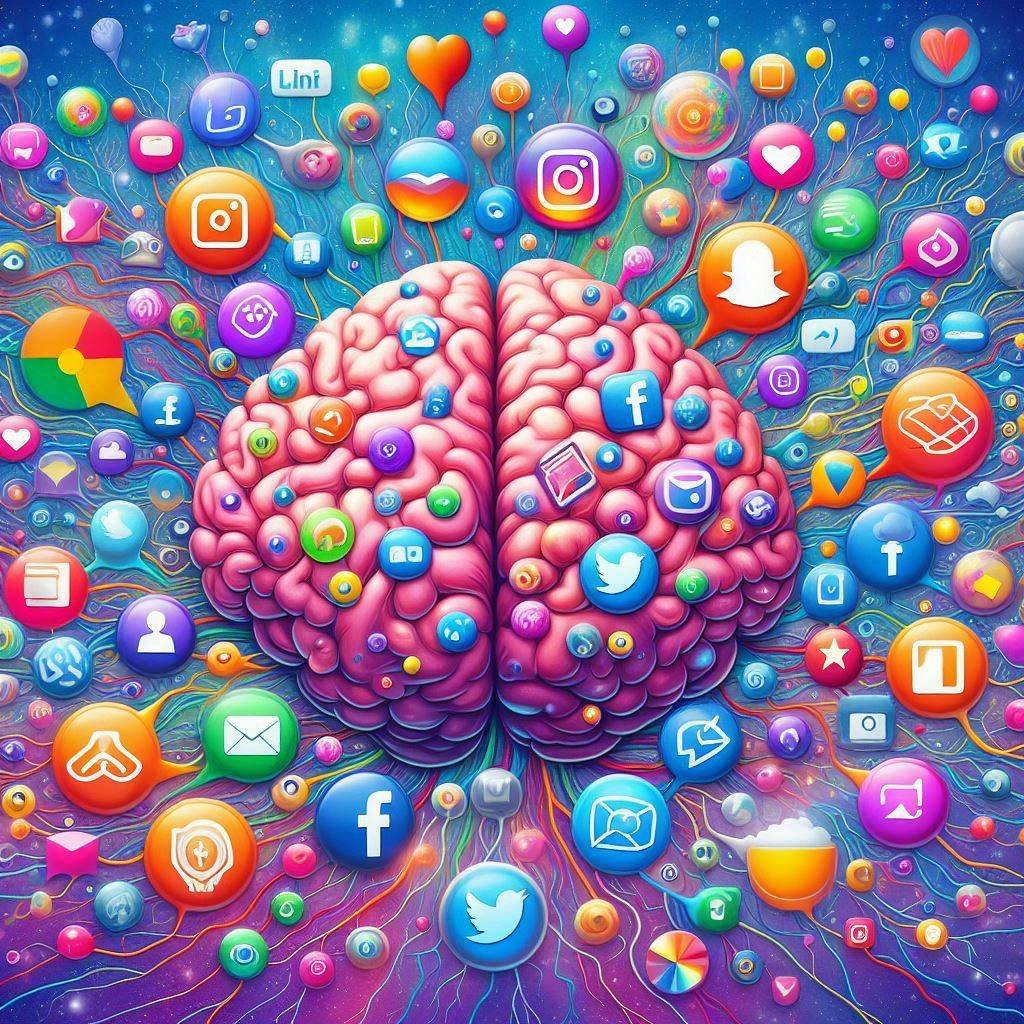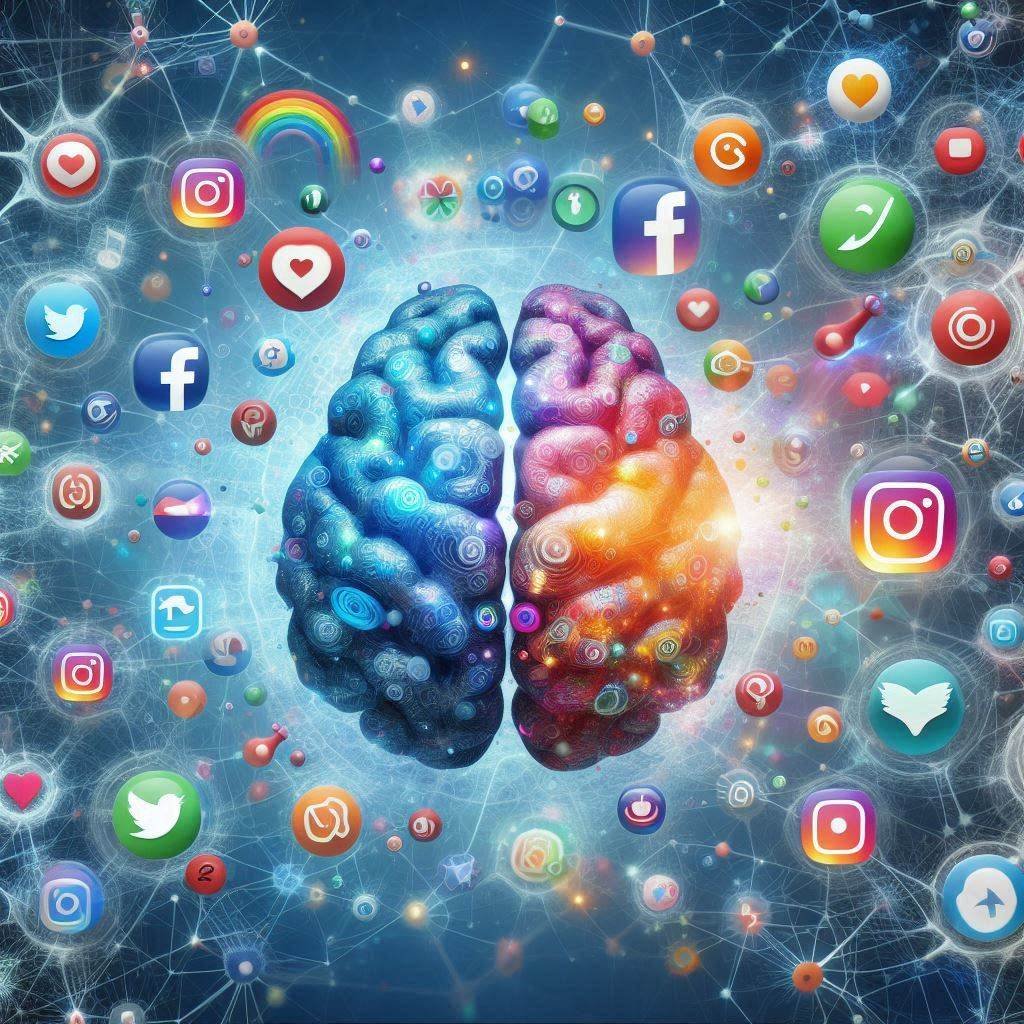Social media has an obvious influence on all part of our lives in this day and age, from professional networking to personal connections. Social media sites like Facebook, Instagram, and Twitter, with their billions of users worldwide, have completely changed the way people share, communicate, and consume information. But there are a number of intricate side effects to this digital transformation, especially in terms of our mental health.
Positive Impacts of Social Media on Mental Health
Connection and Community
The capacity of social media to maintain connections between people is among its most important advantages. Regardless of geographical distances, people can stay in touch with friends and family using social media sites like Facebook, Instagram, and WhatsApp. Those who might feel lonely or alone may benefit especially from this continuous connectedness.
Access to Information and Resources
Social media platforms are important informational resources that give users access to a variety of mental health resources. Users may easily access the information they need, from articles authored by specialists and mental health activists to educational resources about mental health issues and coping skills.
Support Groups and Peer Support
Joining online support groups for particular mental health issues or life struggles provides comfort to a lot of people. These communities, which are frequently located on social media sites like Facebook or Reddit, offer a secure setting where people may talk about their experiences, get guidance, and get support from others who are sympathetic to their difficulties. Support from other people is extremely beneficial since it provides empathy and validation from those who have had similar difficulties.
Expression and Creativity
The social media gives users a creative and self-expression platform, which is beneficial for many people. An international audience can be reached by individuals sharing their writing, music, art, and other creative pursuits on platforms such as Instagram, TikTok, and Pinterest. This kind of self-expression can give one a sense of accomplishment and increase self-esteem. Positive comments from others and creative endeavors can both have a substantial positive impact on one’s mood and general state of mind.

Negative Impacts of Social Media on Mental Health
Comparison and Self-Esteem
Comparing oneself to others on social media is one of the most prevalent negative impacts of the platform. There are a ton of thoughtfully chosen photos and stories on social media sites like Facebook and Instagram, most of which offer an idealized view of the world. Constantly being surrounded by images of other people’s seemingly ideal lives might cause poor self-esteem and feelings of inadequacy. People may find themselves feeling inadequate when they compare their accomplishments, appearance, and way of life to those of peers and influencers.
Addiction and Overuse
Another big concern with social media is its addictive qualities. A lot of platforms are made to grab and hold users’ attention, which might result in overindulgent and obsessive use. Likes, comments, and shares provide instant satisfaction, which can lead to a vicious cycle of reliance as people constantly look to their online presence for affirmation. This excessive use can lead to the abandonment of relationships and obligations in real life, which worsens feelings of loneliness and isolation.
Cyberbullying and Harassment
Cyberbullying is a significant issue that has been exacerbated by the rise of social media. Unlike traditional bullying, cyberbullying can occur 24/7 and reach a wide audience quickly. Victims of online harassment may experience severe emotional and psychological distress, including anxiety, depression, and even suicidal thoughts. The anonymity provided by the internet can embolden individuals to engage in aggressive behavior without fear of repercussions
Information Overload
One may become overwhelmed by the sheer amount of information available on social media. An excessive amount of data exposed to oneself can induce information overload, a stressful condition brought on by constant notifications, updates, and the need to be informed. Decision fatigue, a shorter attention span, and anxiety may arise from this.
Fear of Missing Out (FOMO)
Social media can also contribute to the fear of missing out (FOMO), a feeling of anxiety that arises when one believes others are having more fun or experiencing better things. Constantly seeing posts about friends’ activities, vacations, and social events can make individuals feel left out and dissatisfied with their own lives. This can lead to compulsive checking of social media to stay updated and connected, further feeding into the cycle of addiction and comparison. FOMO can decrease overall life satisfaction and increase feelings of loneliness and inadequacy.
Strategies for Healthy Social Media Use
Setting Boundaries
- Establish Time Limits: Set specific times of the day for checking social media and stick to them. Use tools like screen time trackers to monitor and limit usage.
- Designate No-Screen Zones: Create specific areas in your home, like the bedroom or dining room, where social media is off-limits to encourage offline interactions and relaxation.
- Schedule Social Media-Free Days: Dedicate one day a week or a few hours each day to completely unplug from social media, allowing time to focus on other activities and recharge.
Mindful Consumption
- Curate Your Feed: Follow accounts that inspire, educate, or bring joy, and unfollow or mute those that cause stress or negative feelings. This ensures a positive and supportive social media experience.
- Engage Meaningfully: Be selective about interactions. Prioritize meaningful conversations and avoid mindless scrolling. Engage with content that adds value to your life.
- Be Present: Practice mindfulness by paying attention to how social media makes you feel. If you notice negative emotions, take a break or adjust your usage patterns.
Seeking Professional Help
- Recognize When to Seek Help: If social media usage is causing significant distress or interfering with daily life, consider seeking help from a mental health professional.
- Utilize Online Resources: Many therapists and counselors offer online services. Platforms like BetterHelp or Talkspace provide access to licensed professionals from the comfort of your home.
- Join Support Groups: Participate in online support groups that focus on healthy technology use and mental health. Sharing experiences and strategies with others can provide additional support and motivation.
Frequent Asking questions:

How can social media affect my mental health?
There are several ways that social media might affect mental health. Positively, it can offer a forum for self-expression, information access, and a sense of community. Negatively, it may worsen anxiety, sadness, and low self-esteem by causing problems like comparison, cyberbullying, addiction, and information overload.
What are some signs that social media is negatively impacting my mental health?
Symptoms include comparison to others, feeling nervous or unhappy after using social media, FOMO (fear of missing out), spending too much time online, ignoring relationships and obligations in real life, and having difficulty falling asleep.
How much time should I spend on social media each day?
While there is no one-size-fits-all answer, experts often recommend limiting social media use to about 30 minutes to 2 hours per day. The key is to be mindful of how social media use affects your mood and overall well-being.
How can I reduce the negative impact of social media on my mental health?
Setting time limits, curating your feed to follow uplifting and motivational accounts, going on frequent digital detoxes, having meaningful conversations, and asking for help when necessary are some strategies. Using social media while engaging in self-awareness and mindfulness exercises is also beneficial.




